At The Cosmetic Dentists of Austin, we believe in the transformative power of a smile. Dental implants offer an advanced, durable, and natural-looking solution to bring back your smile and confidence. Our dedicated team is here to guide you every step of the way, ensuring your journey to a revitalized smile is seamless and rewarding.
Understanding Dental Implants
Dental implants are precision-engineered titanium anchors that replace the root portion of missing teeth. Once securely fused with the jawbone, these implants serve as a stable foundation for attaching custom-made replacement teeth, such as crowns, bridges, or dentures.
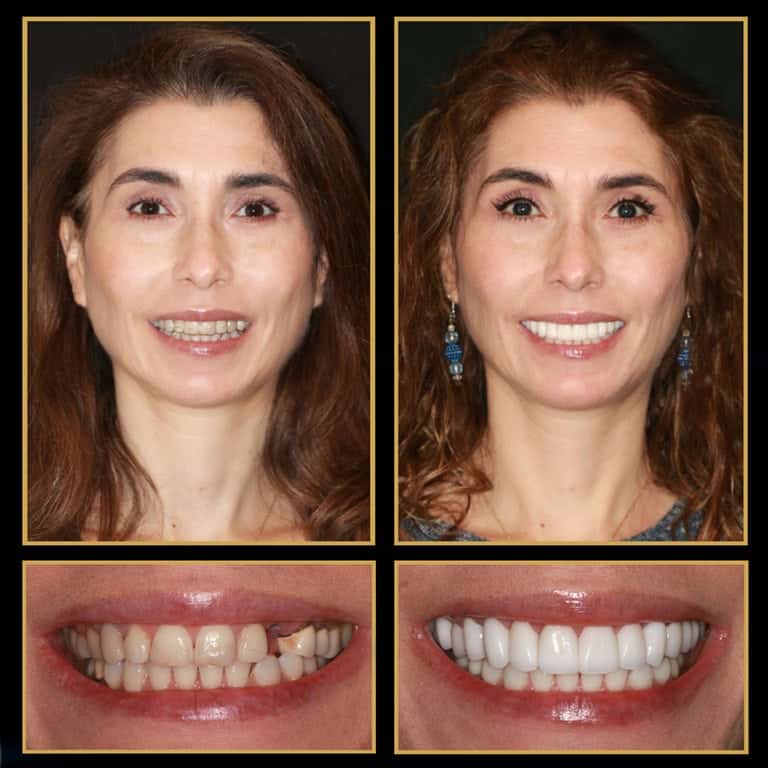
Why Opt For Dental Implants?
- Aesthetic Excellence: Designed to replicate the feel and appearance of natural teeth, dental implants seamlessly integrate into your smile.
- Optimal Function: Speak, eat, and live life without restrictions. Dental implants provide a firm grip that’s unmatched by traditional prosthetics.
- Life-long Durability: When cared for properly, dental implants can serve you for a lifetime, making them a wise long-term investment.
- Jawbone Integrity: By stimulating the jawbone, dental implants deter bone loss, maintaining the natural contours of your face.
The Dental Implant Procedure At The Cosmetic Dentists Of Austin
- Initial Consultation: We begin with an in-depth examination to understand your needs. This allows us to curate a tailored dental implant solution just for you.
- Implant Placement: Leveraging advanced techniques, our experts skillfully place the implant into the jawbone. We ensure your comfort with local anesthesia or IV sedation, based on your preference.
- Healing Period: Patience is key. As the implant bonds with the bone, we provide a temporary solution, so you never miss out on flashing that smile.
- Implant Restoration: Upon successful bonding, we’ll finalize the restoration by fitting your custom-made replacement teeth.
- Follow-up Care: We’re with you for the long haul. Regular check-ups post-treatment ensure your implants remain in prime condition.
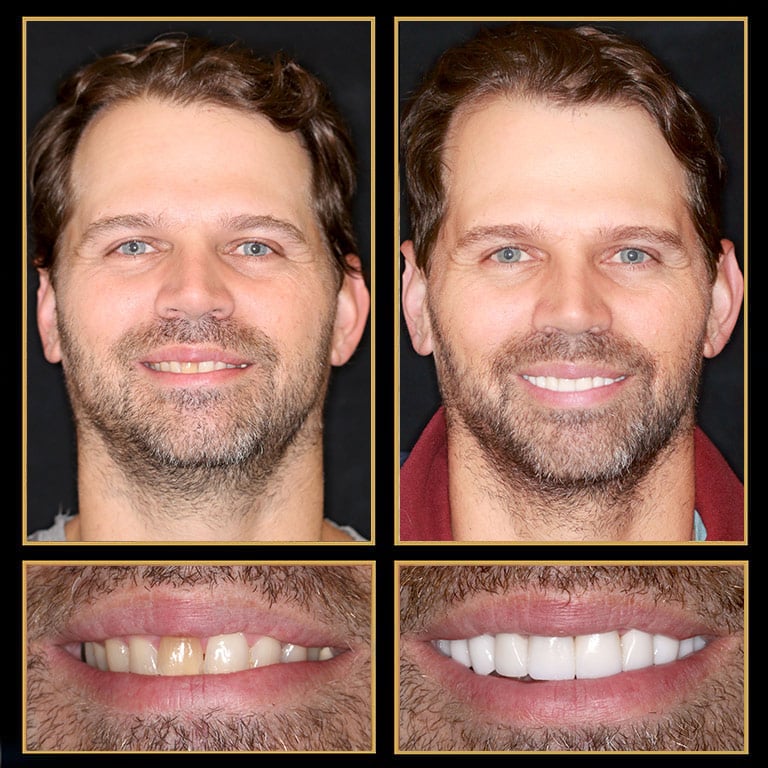

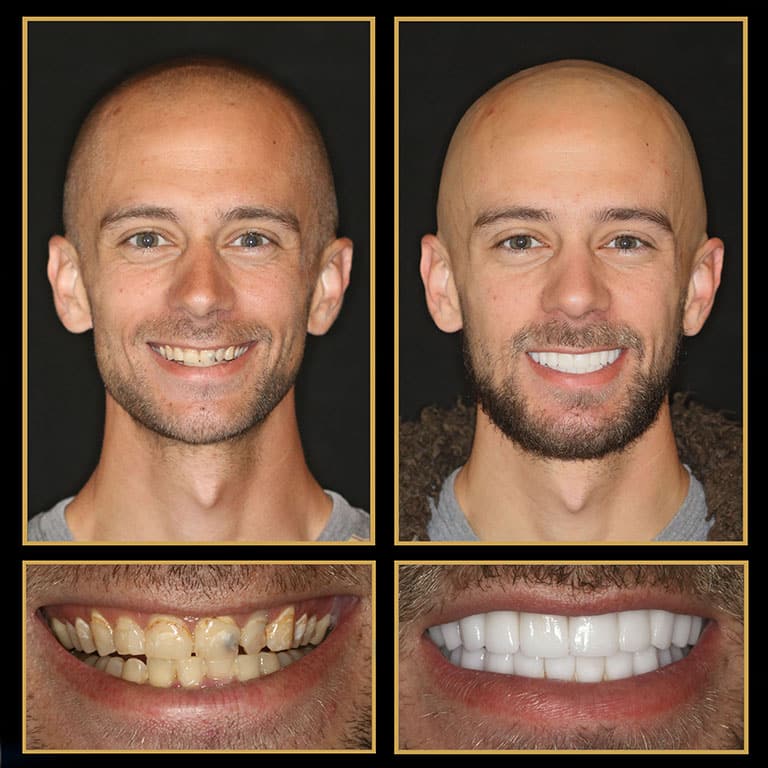
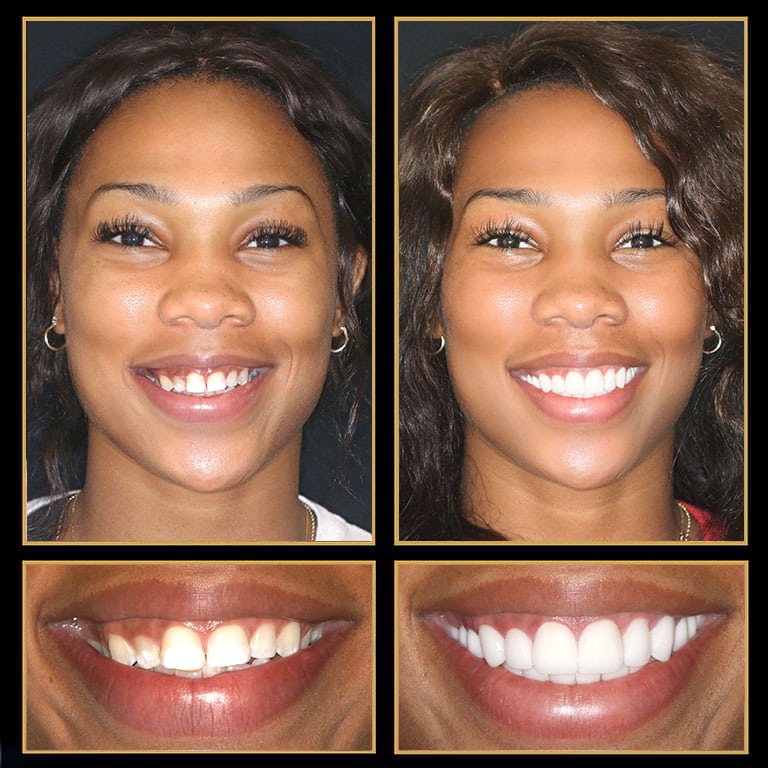
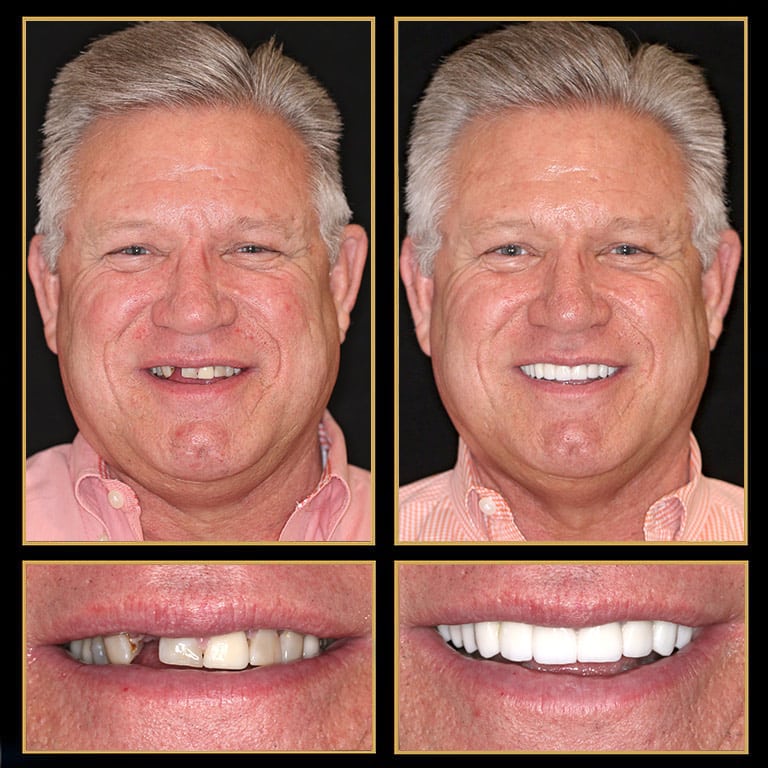
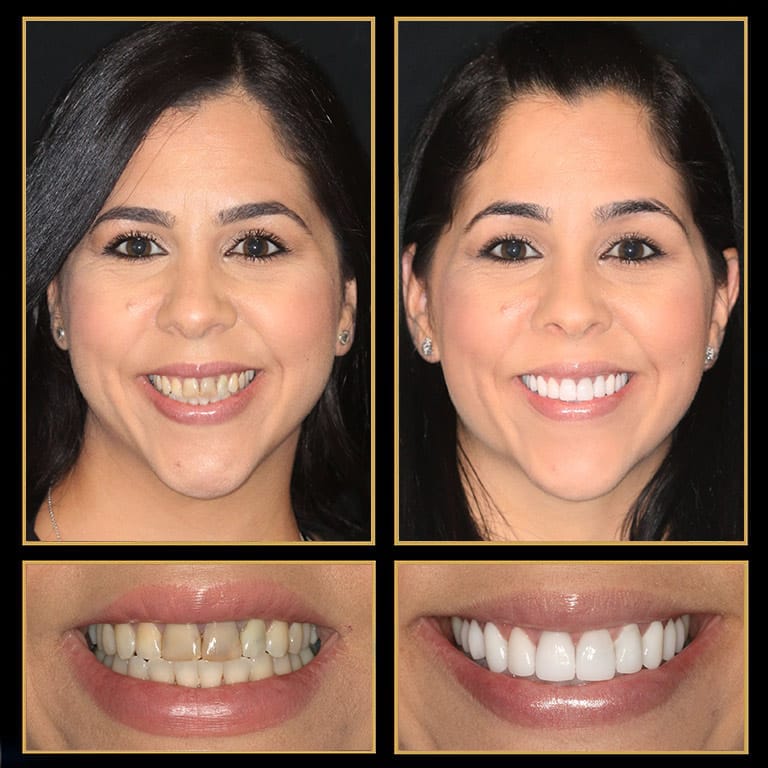
Browse our Smile Gallery to see the before and after pictures of our patients who have improved their smiles with Dental implants. You will see for yourself that their “smile makeovers” have provided dramatic transformations in their smiles and overall appearance!

An Alternative To Dental Implants - A Dental Bridge
Did you know that, oftentimes, a dental bridge can be used as an alternative treatment to Dental Implants? One of the advantages of opting for a dental bridge is that it can be completed in as few as 2 visits! If you’re missing 1 or more teeth within your smile line, click here to see if a dental bridge could be an option for you!
Why Trust The Cosmetic Dentists Of Austin?
Your smile deserves the best, and that’s what we’re here for. With our highly skilled professionals, state-of-the-art technology, and a nurturing ambiance, we promise a dental implant experience that exceeds expectations. Our dedication to patient care ensures your comfort, satisfaction, and well-being are at the forefront.
Call us today at 512.333.7777 for your complimentary consultation, dental appointment, or if you just want more information about our Smile Makeovers in Austin Texas.
